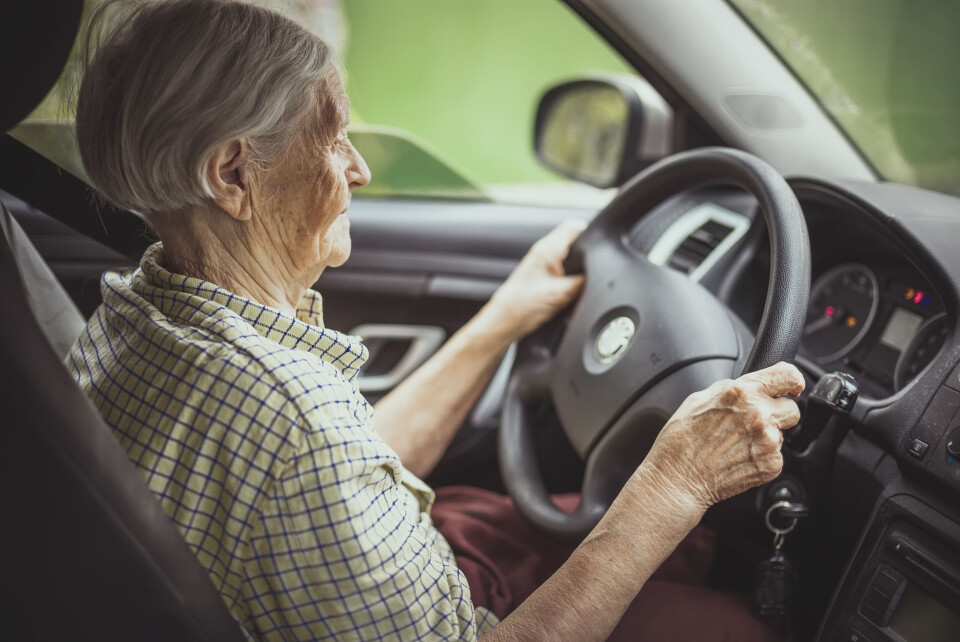-
Britons are the largest foreign community of second-home owners in Nouvelle Aquitaine
See which other departments in the region are popular with British nationals
-
Travellers risk extra costs under new Eurotunnel ticket rule
Some fare options are less flexible and less forgiving of lateness
-
May will be difficult month for train travel in France, warns minister
Two major train unions are threatening to strike and are ‘not willing to negotiate’, he says
Should older drivers in France face medical tests to stay on the road?
The debate was reignited after the vehicle of an elderly driver ploughed into a crowd in northern France, injuring a dozen people

A debate is under way in France about whether older drivers should undergo medical examinations to retain their licences.
It was sparked by an accident in Berck (Pas-de-Calais), northern France, on Saturday (April 22)
The driver, 76, reportedly confused the brake and accelerator pedals, causing the vehicle to plough into a crowd as the town hosted a kite festival.
A dozen people were hurt in the incident, including a woman who was left with life-threatening injuries.
What are the current rules in France?
Licences can be withdrawn as a penalty after a driving offence, but there are no uniform medical tests for elderly people to ascertain whether they are fit to drive.
This stands in contrast to many other European countries where rigorous checks are put in place to ensure older people are still fit to drive.
In the Netherlands, drivers over 75 must take a sight, hearing, and reflex test every five years to keep their licence.
In Ireland, all drivers over 70 undergo yearly medical examinations to continue driving.
Read more: Drivers aged 65 and over offered free refresher courses in east France
So why is France different?
Despite there being no country-wide medical tests for elderly drivers, departmental and regional prefects have the power to demand someone in their jurisdictions undergo a medical examination to see if they are fit to continue driving.
Whilst the examination alone is not enough to revoke a licence, it helps inform the prefect’s decision.
There is an official list of medical conditions that can lead to a temporary or permanent licence revocation by prefects, which was last updated in 2022.
It includes not just conditions themselves, but also symptoms of conditions that can cause danger on roads – such as fatigue or heart difficulties.
With the accident in Berck reigniting the debate, some are calling for legislation to be introduced.
The last attempt to pass a law on the matter was in 2018, which would have seen those over 70 undergo a one-off medical examination to keep their permit - however, the Senate rejected the proposal.
We asked readers for feedback on the topic last year after a petition from a French woman injured by a 92-year-old driver - who lost control of his vehicle in Paris - gained traction.
Read more: French roads ‘will be deadlier’ when speeding penalties eased
Is there a case against implementing a law?
Statistics do not support the idea that elderly drivers are the root of the majority of accidents.
Annual figures show around 10% of accidents on French roads involve someone over the age of 65, but more than double that – over 20% - involve a young driver between the ages of 18 and 24.
Only around 25% of driver fatalities are attributed to the elderly.
It also may have an air of ageism to impose such restrictions – generally, older people will drive less, cover shorter distances and use more familiar routes, according to the Société Française de Gériatrie et Gérontologie (French Society of Geriatrics and Gerontology)
The group added cars are a powerful tool to help the elderly combat social isolation, as well as allow them to keep active and mentally healthy.
It said alcohol and speeding cause far more accidents and deaths than elderly drivers.
The group conceded that for some elderly people medical conditions will limit their ability to drive.
Your view
What do you think?
Should France introduce regular medical tests for elderly drivers? Or would it be better to do more to tackle speeding and drink-driving?
Let us know your thoughts via news@connexionfrance.com
Related articles
Controversial new A69 motorway in southern France: What do you think?
Motorcyclists fill potholes with Easter eggs to protest French roads
























